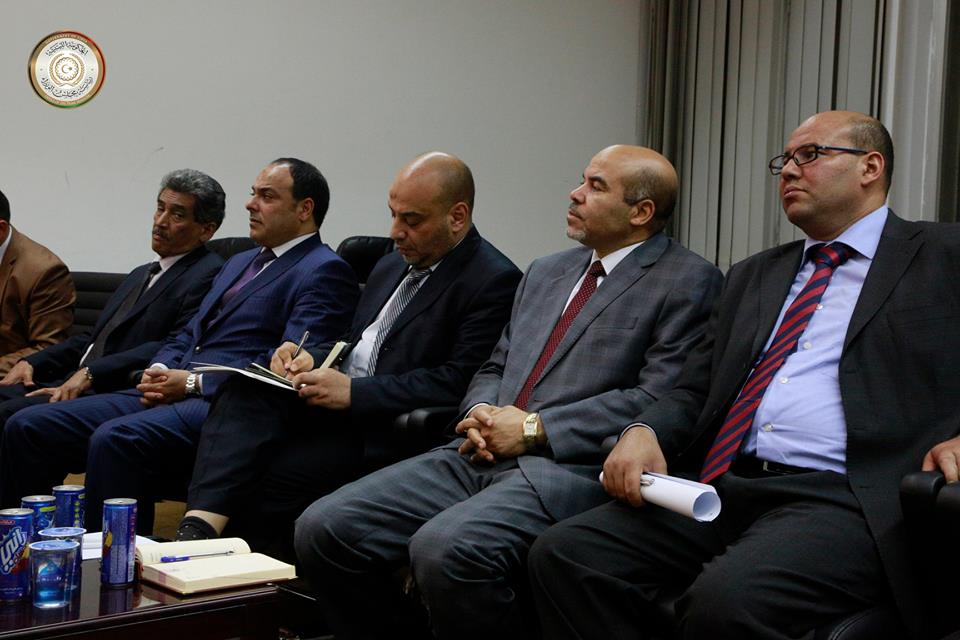By Libya Herald reporter.
Tunis, 1 June 2015:
Good news stories about . . .[restrict]Libya are not common these days, let alone a good business news story in the medical service sector. Yet despite all the wrong headlines Libya creates, life has to go on for the overwhelming majority of its inhabitants in a new and perverse kind of normality.
One of the leading, if not the leading, chemist (pharmacy) in Tripoli and Libya, Almenshia Pharmacy, has launched its medical door to door delivery service. In a country and city where the service sector is still very much under developed, the move will be greeted with much enthusiasm by Tripoli’s residents.
The Almenshia Pharmacy is a family business established in 1993 and restructured and reopened in 2004. ‘‘When established the vision since the beginning was to concentrate on the demand of the market for pharmaceutical products’’.
‘’We supplied medicines if available locally from the registered sources and if not we arranged for delivery from external sources’’, explained doctor Khaled El Agel founder and General Manager of the family business.
”Today, the Almenshia pharmacy concept has become the slogan of our clients: ‘If you cannot find medicine, go to the Almenshia pharmacy’’, El Agel proudly added.
‘‘We did not concentrate on how much we earn by the end of the day, instead we concentrated on pleasing the client. A way to ease the pressure on Libyans due to the pressure caused by the shortage of medicine supply in Libya’’, he explained.
‘‘The idea started when I graduated in 1993 from the Faculty of Medicine at Tripoli University. My older sister Dr Sania had graduated a year earlier than me from the Faculty of Pharmacy”.
”I was full of energy and had time on my hand, due to the fact that there was no clear plan from the Libyan Ministry of Health for graduates like me We had to wait 2 years before you could be employed, working for free or on an internship’’.
‘‘By law, it was not permitted for me, a General Practitioners, to work in or manage a pharmacy. But as we are a family we worked at the pharmacy together. I am the manager and the founder of Almenshia Pharmacy, but my sister Dr Sania, was the professional daily practitioner in the pharmacy with help of our younger pharmacist brother Khaldoon. Other colleagues work with us, incorporated in shift duties in the pharmacy’’.
‘‘When we started the pharmacy in 1993 we were three and over time part timers were incorporated. Today we are six full time and eight part timers apart from the auditor and the finance people’’.
‘‘The name Almenshia goes back to the Tripoli area in Ben Ashour in which the pharmacy was established in. The name means a field full of flowers and jasmine which was an area famous for gardens of nice smelling fields in Ben Ashour when it was still a rural area in the old days’’, explained El Agel.
It was not easy working during the Qaddafi regime and El Agel explained how political discrimination by the authoritarian regime led him to the private sector.
El Agel had graduated from Tripoli University’s Medical Faculty in 1993. He had worked as General Practitioner for a couple of years working for free in the mornings until 1996 in surgery and orthopaedics at Tripoli Central Hospital ‘‘while I was working to establish the name and the concept of delivering the unavailable medical supplies’’, he explained.
In 1996 he was employed as SHO in the pathology department where he passed first selection for pathology post graduate in 2002 followed by first stage qualification of the Libyan Medical Board successfully in 2004.
However, ‘’due to bureaucracy and political favouritism I was not awarded a scholarship to study abroad despite my name being listed three times. But as I was not ‘green blooded’ (pro Qaddafi) nor were any of my family members, I was disqualified’’.
‘‘I realized that it would not happen and so I resigned from Tripoli Medical Centre (TMC) in 2005 and concentrated on the pharmaceutical retail sector since’’.
‘‘I was able to establish a limited liability company named Alhilal Medical working mostly in the private sector as working with the public sector needed some specifications such as robbery, smuggling and bribing none of which I could offer’’, he explained sarcastically about the corrupt public sector under the Qaddafi regime.
‘‘We were fighting for survival during the 1993-1999 (Lockerbie) sanctions era, when the Libyan dinar exchange rate against foreign currencies was too low. The US dollar reached over LD 3 to the dollar – tripling its official exchange rate’’.
‘‘We use to import our needs privately, mainly from Malta through different channels, which continued more or less in the same way during the 2000-2010 for some items’’.
‘‘After the revolution we had a good 2012, but since then we started to experience the same deterioration in supplies, and so we have had to go back to relying on private channels to source our supplies’’.
‘‘We have had to use different sources such as other pharmacies and our own imports, but we are suffering because we have had to concentrate more on the supply chain, standard of transport, transfer of funds etc, as opposed to the retail sector’’.
‘‘There is no regular channel and since January 2015 we have succeeded in opening just one Letter of Credit (LC) (an official documentary transfer of hard currency through the Central Bank of Libya at the official exchange rate of LD 1 to US dollar 1.30) of less than 100, 000 Euros from the bank’’.
‘‘We have five other LCs frozen until today, even though there is a priority for the pharmaceuticals, or at least that’s what the Libyan authorities officially say’’, complained El Agel.
On the idea of door-to-door delivery, El Agel explained that the size of Tripoli encouraged the idea. ‘‘The population of Tripoli was about one million in 2009, but has continued to grow quickly since. After the 2011 revolution and the poor security situation in cities around Tripoli, its population has doubled. We therefore started to think about new ways to deliver medication door to door’’.
‘‘It is not easy because still pharmaceutical products are sensitive products that need multiple precautions and extra care in transport. Special prescriptions need personal attendance to the pharmacy such as the category of narcotics and specially prescribed medications’’, explained the doctor.
‘’We believe that we are the pioneers in the door-to-door delivery of pharmaceutical service in Libya. It falls under our same vision of providing the missing services for clients in the field of health – a service gap that was not seen by our competitors’’.
‘‘However, we found a reliable logistic partner who is an enthusiastic entrepreneur with the responsibility to work with such products. Together, we figured out a plan and flexible strategy to reach the goal of door-to-door delivery in a convenient and economic manner’’.
There is an extra amount charged by the delivery company but not by Almenshia Pharmacy. For the central Tripoli zone it is a LD 5-7 whilst for the suburbs it goes up to LD 10-15.
There is a LD 20-25 charge for areas outside Tripoli according to distance as well as an express hour service.
El Agel is proud of being able to add to the Libyan service sector and at the same time help Libyans at a time when the country is going through a difficult time. ‘‘I believe that we need to work hard and pleasing the client is our aim’’, he concluded [/restrict]











